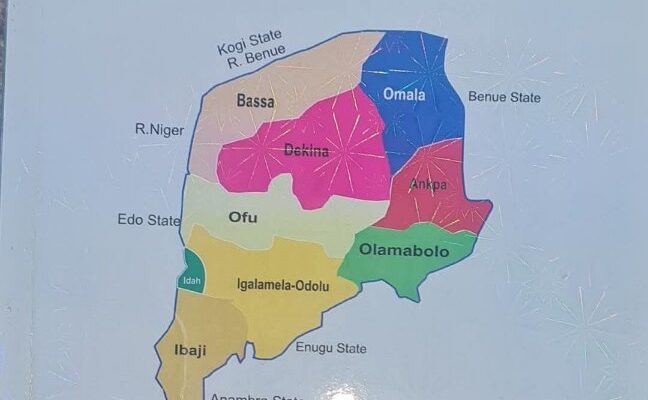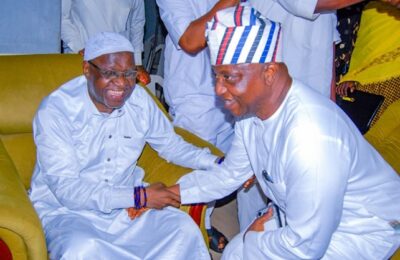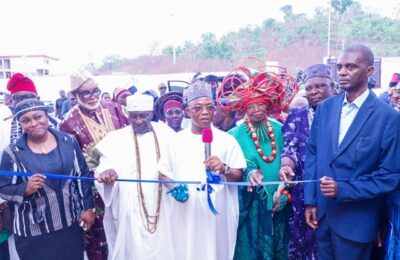In the waning twilight of Nigeria’s fragile federalism, a muted groan escapes the forgotten lands of the East—a groan ancient as the drums of Oforachi and deep as the wells of Ogbabo . It is the voice of a people whose thrones were exchanged for tokens, whose sceptres were traded for silence. That voice is Okura . And its emergence is no longer a petition—it is words of wisdom clothed in necessity. Creating Okura State is not a mere proposal; it is the redemptive agenda of a people exiled in their inheritance.
The urgency is sacred. Okura is not born of ethnic self-adulation but of constitutional equilibrium and national renewal. The Igala proverb resounds, ” Ef Atu gbenyo gbane ololo i chane kwa dabi Idu “— “when the antelope is ignored too long, it learns to roar like the lion.” Okura is the roar of a people who have waited too long, prayed too long, and bled too quietly beneath the boots of political deceit.
From Idah to Ibaji , from Dekina to Olamaboro , the land weeps in dusty silence. Our roads are tales told by potholes. Our schools are shadows of vision. Our hospitals echo only the sounds of broken ceilings and fainting nurses. Development in Kogi East is like rain that falls but never wets the ground—evaporated by misrule before it touches the people. We do not seek a state out of bitterness; we demand it out of brokenness.
What Kogi East needs is not rotational band-aids or appeasement tokens from condescending regimes. It needs surgical justice. It needs statehood. The birth of Okura State is not the mutilation of Kogi—it is its healing. It is the wisdom of Solomon applied to a child two mothers claim: let the child live, not die under false unity.
Constitutionally, Okura’s claim is unassailable. Politically, it is strategic. Morally, it is divine. We have the numbers, the history, the economy, and the cultural harmony. We are not strangers trying to force open a gate—we are landlords reclaiming a house we built with our blood and bones. The Elders says “When God wants to bless a people, He shakes the foundation of injustice.” Okura is that divine earthquake Nigeria must not resist.
Let it be clear: we are not begging for a state—we are birthing one. And births come with labour pains. The child in our womb is Okura , and it is overdue. The Igala elder says “when a canoe delays too long on shallow waters, the paddles rot, and destinies drown.” Delay is dangerous. Procrastination has become betrayal.
Those who sit at the apex of national power must understand: ignoring Okura is not political wisdom—it is systemic suicide. Nigeria cannot continue to deny justice and expect stability. As Bishop David Oyedepo rightly observed, “The plague of injustice is more lethal than the weapons of war.” Okura is the justice balm for a bleeding federation.
Moreover, the Okura vision is inclusive. It is not an Igala-only dream. It is a covenant space for the Bassa, Idoma, Igbos, Ebira Kotos, and all ethnic minorities yearning for dignity in Kogi East. The elders warn “when the little fish gathers in unity, the river trembles.” Let Abuja know: our strength is not in tribal walls, but in collective will.
We have watched Kogi East become a ritual ground where appointments are made for praise-singers, and budgets are buried in shallow graves. We have watched governors forget us, leaders betray us, and brothers sell us for a bowl of political porridge. But like dry bones in the valley of Ezekiel, we rise. And we births Okura , not as ambition—but as resurrection.
To the international community, hear this: the struggle for Okura is not anti-Nigeria; it is pro-justice. It is the cry of a people who planted and _watered but were forbidden to harvest. It is the story of a lion muzzled by mice, a palace turned to prison. We are the custodians of ancient thrones, descendants of Ayegba Om’Idoko—who once fed kings and held councils with gods. Yet today, we queue behind parvenus who mistake noise for leadership and betrayal for strategy.
“Iji ki jo chaka iki muda kadu ucha n,” says an ancient Igala maxim—”The firewood must burn but not the pot”._ Let Nigeria stop roasting its best regions on the altar of political greed. Okura is the unburnt pot—it carries the soup of national peace.
Let no senator mock our resolve. Let no president ignore our papers. Let no governor dilute our pain. We are beyond lobbying—we are legislating destiny in the courts of God. For when the spiritual clock ticks, even kings must bow. Okura is now a spiritual mandate.
Bishop Abioye once said, “The future belongs to regions that structure wisely.” Okura is that wise structure. It is not rebellion—it is reformation. It is not agitation—it is alignment with equity. It is the only mirror through which Nigeria can see the beauty of federal balance again.
We are not just asking for a name on a map—we are demanding a place in the sun. Okura is not a monument to ego, but a monument to endurance. And soon, when Nigeria’s geography is rewritten with justice as ink and truth as pen, may it be said that Okura stood—not as a noise, but a nation within a nation.
Okura is not just a state—it is a spiritual renaissance, a political redemption, and a prophetic restoration. Sustain Okura —and Nigeria shall heal. Sustain Okura —and East shall rise. Sustain Okura —and our children shall walk where we once crawled.
Okura Awa eeeh!!!!!
Amen.
– Inah Boniface Ocholi writes from Ayah – Igalamela/Odolu LGA, Kogi state.
08152094428 (SMS Only)




